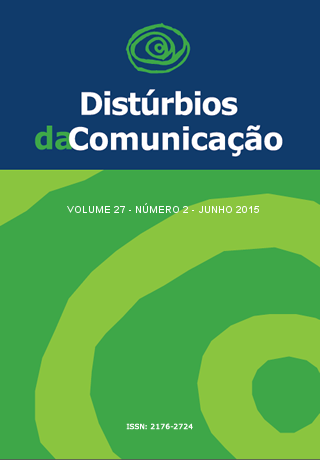Performance regarding the learning process in a Velocardiofacial Syndrome case
Keywords:
DiGeorge Syndrome, learning disorders, Speech, language and hearing sciences, NeuropsychologyAbstract
Introduction: The Velocardiofacial Syndrome is a genetic condition involving more than 180 clinical manifestations. The presence of learning disabilities is highly reported in this syndrome and it is considered one of the most challenging manifestations. According to literature, the genetic condition of the syndrome causes neurological disorders that harm the learning process. Therefore, it is essential to investigate which skills are altered and preserved. Objective: To describe the main difficulties and potentialities underlying the learning process in a case of VCFS. Methods: Applying standardized instruments were assessed cognitive-linguistic skills, perceptual-motor skills and executive functions of a male person, 13 years old, diagnosed with SVCF. Results: The results indicate deficits in phonological processing, working memory, rhythmic organization, receptive and expressive language, semantics and pragmatics, graphic-motor perception and executive functions related to sustained attention, planning, strategy and cognitive flexibility. Such lags proved detrimental to the use of reading comprehension activities, writing and numeric computation. Neuropsychological functions of cutaneous and synesthetic sensations, higher visual functions and numerical dexterity were preserved. Conclusion: This study identified impairments in neuropsycholinguistic and neurocognitive skills involved in the learning abilities. Thereby the study contributes with the diagnostic and possibly the therapeutic process of individuals with SVCF.Downloads
Metrics
Downloads
Published
Issue
Section
License
Copyright (c) 2015 Thais Freire, Thais dos Santos Gonçalves, Cibelle Nunes Moretti, Maria de Lourdes Merigui Tabaquim, Patricia Abreu Pinheiro Crenitte

This work is licensed under a Creative Commons Attribution 4.0 International License.









